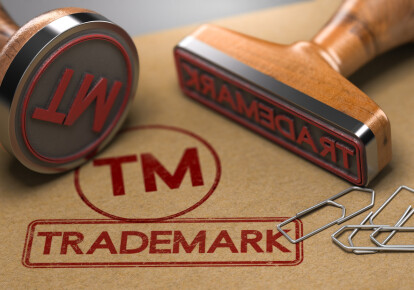I am studying in the third year of the State University of Economics and Technology.I specialize in contractual, economic and corporate law, in particular, I provide consultations and write articles.
A trademark (trademark, trademark) is an important business asset for several key reasons. Its meaning covers both legal and commercial aspects:
Question
How does trademark registration affect business security?
Answer
A trademark provides legal protection to a business against the use of similar marks by other companies. Trademark registration grants the exclusive right to use that mark for specific goods or services within a specific jurisdiction. Trademark protection helps prevent counterfeiting and unauthorized use of a company's name, logos, or symbols.
Question
What are the commercial advantages of trademark registration?
Answer
A trademark helps a business stand out on the market and creates competitive advantages. This can include unique designs, symbols or logos that attract consumers' attention. A strong brand can be used for effective marketing campaigns, promotions and promotion strategies. Well-known trademarks often become part of advertising and promotional activities.
Question
How does trademark registration affect business recognition?
Answer
A trademark helps to create and maintain a brand identity. This allows consumers to easily recognize a product or service and distinguish it from competitors. High-quality branded products or services can build a positive reputation that promotes customer trust and loyalty.
Grounds for refusal to register trademarks:
According to the current legislation of Ukraine on trademarks, there are certain restrictions and conditions under which designations cannot receive legal protection. Here are the main ones:
- Lack of distinctiveness: Marks that do not have the ability to distinguish the goods or services of one enterprise from others. These may be common words, terms, or symbols that have not acquired distinctiveness through their use.
- Common Terms: Designations consisting only of common words or terms in modern language or trade practice cannot be registered as trademarks.
- Descriptiveness: Designations that describe characteristics of goods or services, such as type, quality, composition, quantity, properties, purpose, value, geographic origin, or other characteristics. Such designations cannot be legally protected because they are not unique and may mislead as to the nature of the goods or services.
- Misleading Designations: Designations that are likely to mislead as to the properties, quality, geographic origin of the goods or services, or the person making or providing them.
Common symbols: Designations consisting only of common symbols or terms cannot be registered as trademarks.
- Names of plant varieties: Designations that are the names of plant varieties that have already been registered or applied for registration in Ukraine or under international agreements of Ukraine before the date of filing the trademark application.
- Geographical indications: Indications containing geographical indications that have already been registered or applied for registration in Ukraine or under international agreements before the date of application, if they use the reputation of the geographical indication or mislead about the special qualities, characteristics or true origin of the goods.
Application review procedure and action algorithm in case of rejection:
The procedure for considering applications for trademarks includes several stages, especially when it comes to assessing the compliance of the applied designation with the conditions of legal protection. Here's what the process looks like when inconsistencies are detected:
- Qualification examination: NOIP (National Intellectual Property Authority) conducts a qualification examination of the submitted trademark application. This examination determines whether the claimed designation meets the conditions of legal protection.
- Sending a preliminary conclusion: If, based on the results of the examination, there are reasons to believe that the applied designation does not meet the conditions for granting legal protection in whole or in part, the IPPO sends the applicant a substantiated preliminary conclusion. The conclusion contains an exhaustive list of reasons why the declared designation does not meet the conditions of registration. This may be due to lack of distinctiveness, descriptiveness, possibility of misleading, etc.
- Proposal to respond: The opinion also includes a proposal to provide a reasoned response as to why the claimed designation is still eligible for registration. This allows the applicant to correct deficiencies or provide additional arguments. The applicant has the right to provide a reasoned response to the preliminary opinion within 2 months (this period can be extended to 6 months).
- Refusal Analysis: Make sure you receive a formal written opinion from IPPO detailing the reasons for the refusal. Analyze the reasons for refusal indicated in the conclusion. These may be issues of distinctiveness, descriptiveness, likelihood of confusion, etc.
- Filing an objection If you believe that the IPRO decision is not justified or there is an opportunity to appeal it, you can prepare an objection against the decision. Include in the objection new arguments that confirm the compliance of your designation with the conditions of registration, or provide additional documents or evidence.
- Submitting a new application If the rejection was based on certain deficiencies in the application, you can submit a new application after correcting the specified errors. Make sure that the new application meets all the requirements of the law and takes into account all previous comments.
Legal assistance in case of refusal to register a trademark:
Lawyer services in the event of a refusal to register a trademark can include several key steps and actions to increase the chances of success in resolving the issue. Types of legal services:
Lawyer help in the process of trademarkregistration helps to avoid problems with violations of legal norms and to provide legal protection for unique business identifiers. Prompt and accurate response to rejection will help preserve the trademark and protect rights. A legal services specializing in intellectual property can significantly increase the chances of success in the trademark registration process and ensure legal protection of business interests.




































